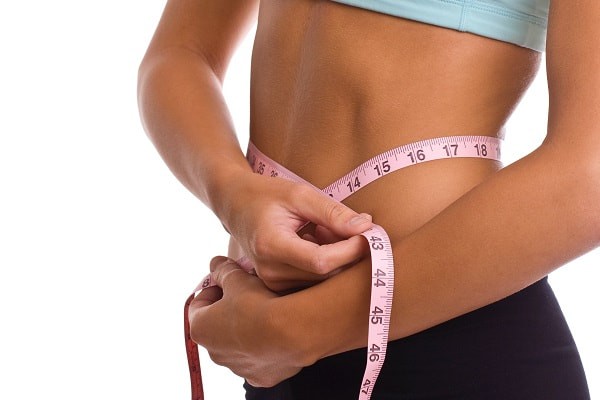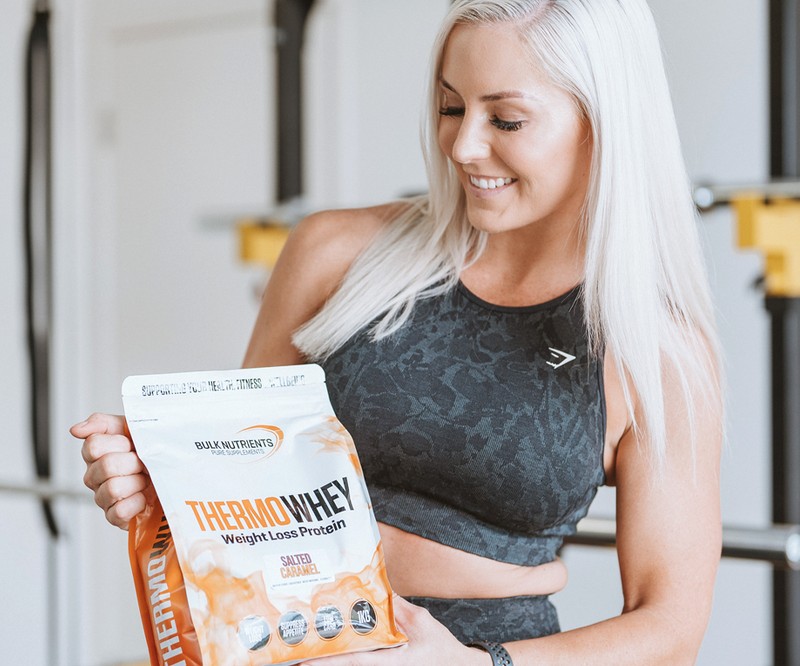Can You Lose More Fat on a Ketogenic Diet?

What's the best weight loss diet?
Such is a question many people ask when fat loss is the goal, and this is why some take to trying the ketogenic diet. Firstly, a ketogenic diet is governed by the following:
- High protein
- High fats
- Low carbohydrates (20-50 grams per day).
Some think that because you're not eating carbohydrates, you're not "spiking insulin" as much, and therefore not gaining as much weight. The (incorrect) idea is that when insulin is spiked, you're driving nutrients to muscle cells and fat cells, which means you will be gaining extra weight! Whilst insulin DOES drive nutrients into muscle cells and fat cells, just because you're sending nutrients to fat cells doesn't mean you're gaining weight. Scientists refer to this as the "carbohydrate-insulin hypothesis of obesity", which has been debunked multiple times.
You can send 2000 calories worth of energy to your fat cells, but if you burn 2500 calories a day, you can't gain weight. So spiking insulin isn't the problem here. Again, it comes back to this fact about weight loss: it is governed by a calorie deficit only, not the foods that make up that deficit.
Here are a few studies where the carbohydrate-insulin hypothesis of obesity has been disproven:
- When protein was matched in a review of 32 studies, low carbohydrate diets or ketogenic diets provided no difference in weight loss
- When subjects follow a diet made up of 77% carbohydrates, they still lose weight.
- When subjects go on either high-fat, low-carb diets or high-carb low-fat diets, the fat loss is the same.
So the idea that "insulin is bad for fat gains" is totally false. And the next time you hear this incorrect and disproven hypothesis being touted, you might like to remind people that whey protein spikes insulin too, and is actually more insulinogenic than white bread!

Will the ketogenic diet make me feel full?
Ketogenic diets have been shown to help subjects feel full when adhering to them. The researcher's state:
"...the clinical benefit of a ketogenic diet is in preventing an increase in appetite, despite weight loss, although individuals may indeed feel slightly less hungry (or more full or satisfied)."
The researchers go on to explain how ketosis, the process of when your body is burning dietary fat instead of carbohydrates for energy, appears to be the reason people's appetites can be suppressed. And this is where one of the main confusions has been with the ketogenic diet: people have thought they're burning body fat on a ketogenic diet when they're actually burning the dietary fat they've eaten.
So you may personally find that a ketogenic diet makes you feel less hungry. But the issue some people have with it is simply staying on it.
Is a ketogenic diet good for fat loss?
Whilst it may help you stay fuller for a while, adherence is a big problem for a lot of people. One review concluded:
"Adherence appeared to be particularly problematic for those studies who set out to achieve a very low-carbohydrate diet (<50 g carbohydrate per day), with only one out of the six trials that prescribed a very low carbohydrate diet being able to achieve this target as an average value."
So this is where you'll need to give the diet a try for yourself to see how you get on with it. But depending on the exercise you do, it can be a hindrance.
Is a ketogenic diet good for exercise performance?
The other issue is the hindrance of performance. Research shows that anaerobic exercises like sprinting or weight lifting are negatively affected by the low levels of carbohydrates eaten on a ketogenic diet. So if sprinting is your thing, or weightlifting (as it may be for lots of people reading this) you're putting yourself at a disadvantage.
However, research shows a ketogenic diet may be better for endurance athletes (although the authors say more research is needed because the results are mixed).

It all boils down to this…
The most successful weight loss diet is the one you can stick to. If that's the ketogenic diet, then go for it. But it won't allow you to lose more weight, it might be harder to stick to and could hinder your weight training performance.
Although, it might help you feel fuller in comparison to other dietary approaches; something you'll have to figure out for yourself. The reality is you don't have to shun carbohydrates in order to lose weight, so it might be worth giving all dietary options a try to see which suits your lifestyle and goals best!
References:
- Aragon, A.A., Schoenfeld, B.J., Wildman, R. et al. International society of sports nutrition position stand: diets and body composition. J Int Soc Sports Nutr 14, 16 (2017). https://www.tandfonline.com/doi/full/10.1186/s12970-017-0174-y
- Bailey, C.P., Hennessy, E. A review of the ketogenic diet for endurance athletes: performance enhancer or placebo effect?. J Int Soc Sports Nutr 17, 33 (2020). https://doi.org/10.1186/s12970-020-00362-9
- Claessens M, Calame W, Siemensma AD, van Baak MA, Saris WH. The effect of different protein hydrolysate/carbohydrate mixtures on postprandial glucagon and insulin responses in healthy subjects. Eur J Clin Nutr. 2009 Jan;63(1):48-56. Epub 2007 Sep 12.
- Gibson AA, Seimon RV, Lee CM, Ayre J, Franklin J, Markovic TP, Caterson ID, Sainsbury A. Do ketogenic diets really suppress appetite? A systematic review and meta-analysis. Obes Rev. 2015 Jan;16(1):64-76. doi: 10.1111/obr.12230. Epub 2014 Nov 17. PMID: 25402637.
- Hall K, Guo J. Obesity Energetics: Body Weight Regulation and the Effects of Diet Composition. Gastroenterology. Gastroenterology. 2017;152(7):1718-27.
- Huntriss R, et al. The interpretation and effect of a low-carbohydrate diet in the management of type 2 diabetes: a systematic review and meta-analysis of randomised controlled trials. Eur J Clin Nutr. 2018 Mar;72(3):311-325.
- Masood W, Annamaraju P, Uppaluri KR. Ketogenic Diet. [Updated 2021 Jun 11]. In: StatPearls [Internet]. Treasure Island (FL): StatPearls Publishing; 2021 Jan-. Available from: https://www.ncbi.nlm.nih.gov/books/NBK499830/
- Paoli A, Bosco G, Camporesi EM, Mangar D. Ketosis, ketogenic diet and food intake control: a complex relationship. Front Psychol. 2015;6:27. Published 2015 Feb 2. doi:10.3389/fpsyg.2015.00027
- Sacks FM, Bray GA, Carey VJ, Smith SR, Ryan DH, Anton SD, McManus K, Champagne CM, Bishop LM, Laranjo N, Leboff MS, Rood JC, de Jonge L, Greenway FL, Loria CM, Obarzanek E, Williamson DA. Comparison of weight-loss diets with different compositions of fat, protein, and carbohydrates. N Engl J Med. 2009 Feb 26;360(9):859-73. doi: 10.1056/NEJMoa0804748. PMID: 19246357; PMCID: PMC2763382.
- Salehi A, Gunnerud U, Muhammed SJ, Ostman E, Holst JJ, Björck I, Rorsman P. The insulinogenic effect of whey protein is partially mediated by a direct effect of amino acids and GIP on beta-cells. Nutr Metab (Lond). 2012 May 30;9(1):48.
- Shintani TT, Beckham S, Brown AC, O'Connor HK. The Hawaii Diet: ad libitum high carbohydrate, low fat multi-cultural diet for the reduction of chronic disease risk factors: obesity, hypertension, hypercholesterolemia, and hyperglycemia. Hawaii Med J. 2001 Mar;60(3):69-73. PMID: 11320614.
- Wilcox G. Insulin and insulin resistance. Clin Biochem Rev. 2005;26(2):19-39.
Related Blogs

The Benefits of Coffee for Weight Loss and Health
Posted by Bulk Nutrients
Estimated reading time: 5 minutes

How to Keep Losing Weight When Fat Loss Stalls
Posted by Bulk Nutrients
Estimated reading time: 8 minutes

Choosing a Protein Powder for Weight Loss
Posted by Bulk Nutrients
Estimated reading time: 5 minutes














































